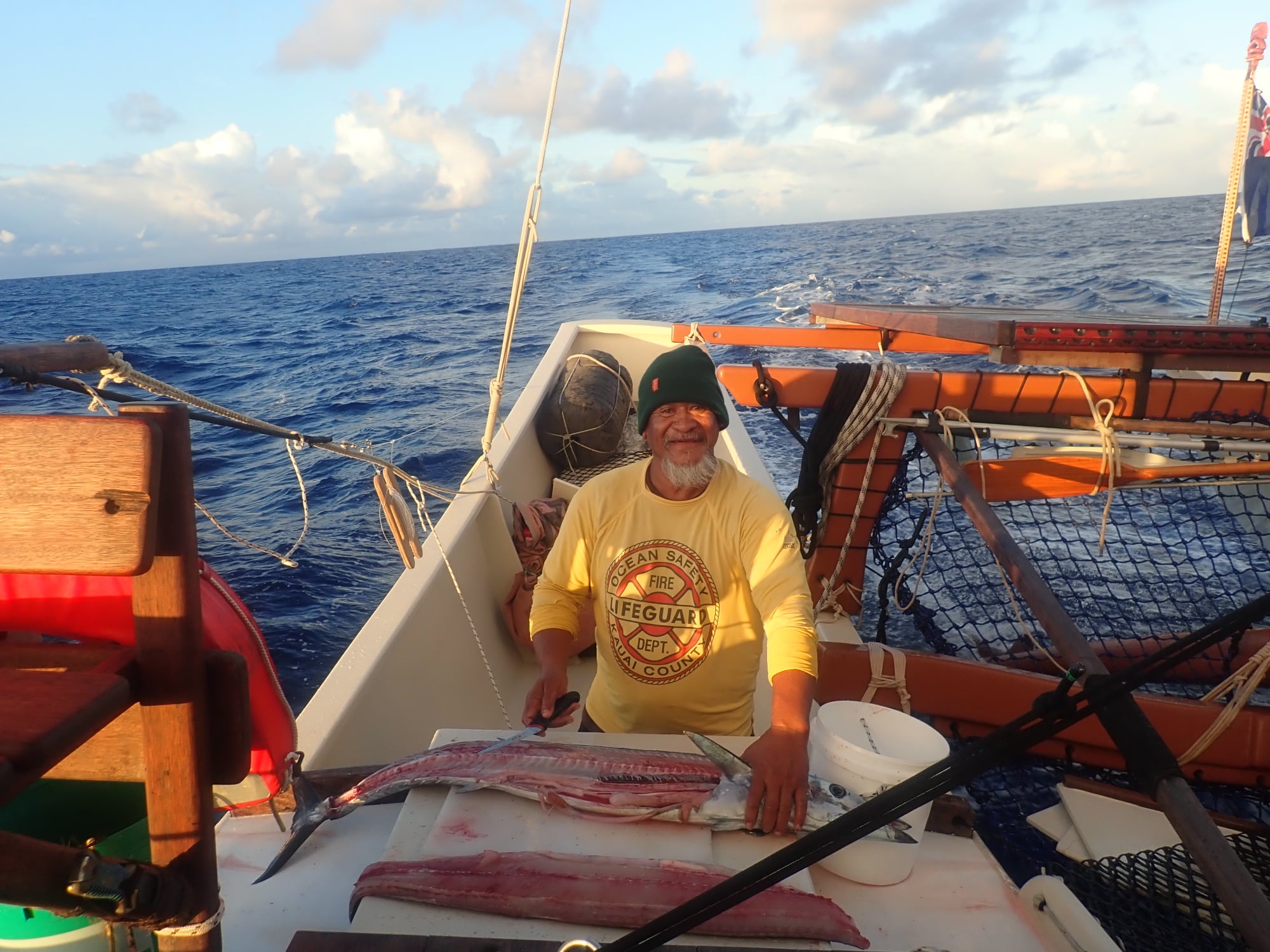WTF – Where’s the Fish?
Saturday 31 July 2021 | Written by Te Ipukarea Society | Published in Opinion

Steve aka ‘Steak’ carves up tuna for the crew of the Marumaru Atua, proving there is some fish out there? SUPPLIED/21073026
Everyone is wondering WTF? - Wheres the Fish? Anecdotally, across the Cook Islands people are talking about this big issues saying catches are low, even for this time of year, writes Te Ipukarea Society.
Many reasons have been suggested, alot of which are valid. Unfortunately the impact of climate change is one of the reasons which cannot be ignored.
This week, Dr Teina Rongo of Kōrero O Te `Ōrau who is with the Marumaru Atua northern group voyage, wrote his blog entry from Suwarrow. His first visit being 21 years ago and which inspired his interest in marine science.
Dr Rongo was disappointed and surprised in not being able to catch tuna in Suwarrow. From his blog entry Dr Rongo commented “Twenty-one years ago, schools of tuna jumped out of the water that it only took us 15 -20 minutes to catch enough to eat was so engrained in my memory, but that is now ruined”.
“On the second day, the first activity we did was fishing for tuna, and Captain Peia, an avid fisherman, was able to join us. We had four handlines out with our cameras ready to capture this moment. With no surprise and a consistent situation throughout the other Pa ‘Enua, after an hour trolling, we did not catch a thing.
“However I must add, the others did go again the next morning, and they did catch three or four, but they were all reef fishes… rainbow runner and dogtooth tuna. WTF! – Where’s The Fish!”
Dr Rongo says “we are expecting this situation to worsen because of climate change (i.e., thermal stress), heavy fishing pressure of pelagic species from commercial fishing, and illegal fishing activities that are likely happening when the rangers are back in Rarotonga. I have also noticed the impacts of coastal erosion and the loss of land from sea level rise on Anchourage and other motus (i.e. Whale Island)”.
New research published this week in the Nature Sustainability Journal shows climate change will dramatically alter tuna stocks in the tropical Pacific.
Tuna species are highly migratory – they can move over large distances according to ocean conditions. They are known to move east or west depending on whether it is an El Niño or La Niña cycle. For example, last year’s strong La Niña 2020 was reportedly one of the reasons affecting the lower reported commercial fishing take in the Cook Islands.
However, the new research shows that under climate change, the tropical waters of the Pacific Ocean will warm further. This means that tuna are projected to shift eastward – out of sovereign waters and into the high seas.
This shift into areas beyond national jurisdiction would result in weaker regulation and monitoring, with serious implications for the long-term sustainability of stocks.
This new research goes further to try to understand the extent of the impacts on tuna migration, based on different carbon emission scenarios. Both the higher and lower scenarios resulted in a negative impact on Pacific tuna catches. However, the lower emissions scenario was much better than the high.
The results of this research highlight the importance of advocating for international climate action, due to the direct impact on Pacific nations including the Cook Islands.
It also has implications for how we manage our commercial fishing licencing, particularly in how we assess the potential environmental impacts of our large scale commercial fisheries.
The full Nature Sustainability journal entry can be found at www.nature.com “Pathways to sustaining tuna-dependent Pacific Island economies during climate change” dated July 29, 2021.




































